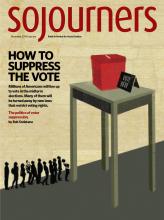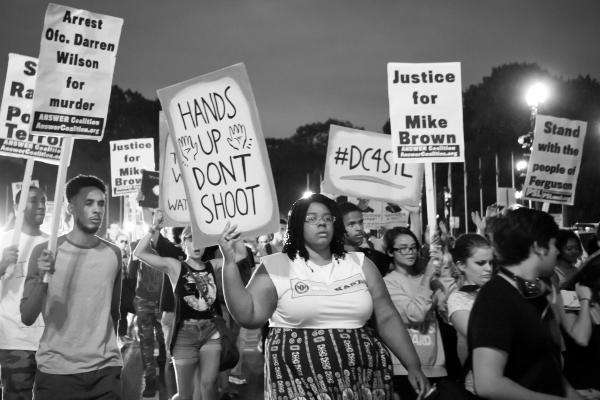ON AUG. 9, Michael Brown, an unarmed black teenager, was shot to death by Ferguson, Mo., police officer Darren Wilson. A collective groan was let out across social networks—people began the lament “Not again.”
Just four days prior, John Crawford III, a 21-year-old black man, had been gunned down by police in a Walmart in suburban Dayton, Ohio, without warning, while shopping for a BB gun. A few weeks earlier, Eric Garner, an African-American man, was choked to death by a New York City police officer.
For young black men, each incident is a reminder of how easily our lives can be taken away by police aggression. For the people in Ferguson, however, over-policing is all too familiar. In a city where 67 percent of the residents are black, there are only three black police officers on a force of 53.
A 2013 report from the Missouri attorney general’s office revealed just how bad relations are between officers and black citizens. Out of the 5,384 traffic stops made last year by the Ferguson Police Department, 86 percent of them targeted black drivers. Black drivers were searched and arrested at nearly twice the rate of white drivers, although contraband was found at a rate 13 percent less than that of white drivers.
Read the Full Article

